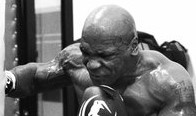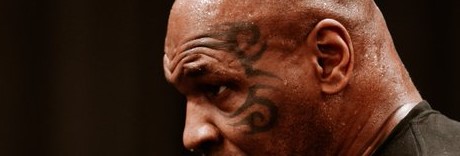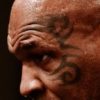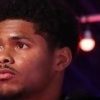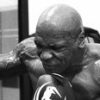Guest column by Hans Olson
What do Edwin Rodriguez, Thomas Oosthuizen, James DeGale, Mikkel Kessler, Kelly Pavlik, Sakio Bika, Lucian Bute, Andre Dirrell, and Carl Froch all have in common?
At one time or another, they chose not to fight current lineal light-heavyweight champion Adonis “Superman” Stevenson, going back to 2012.
“Well,” one might say. . . “Rodriguez already had an HBO date back then. . . .”
“Kessler and Froch wanted to fight each other for more money. . . .”
“There was no incentive for Pavlik or Bute to fight Adonis. . . .”
Sure, I understand.
And granted, the timeline for when each of the aforementioned fighters were to have fought Adonis varied. You can’t call anybody on that list a “coward” by any stretch of the imagination.
They are all warriors: dyed-in-the-wool combatants who care not about whom they fight, but when.
And for how much.
Such is the business of boxing.
People will say that Adonis Stevenson caught a “break” when promoter Gary Shaw gifted his sliding champion to Adonis in 2013.
But there is more to that story. Chad Dawson, ever since his defeat to Jean Pascal, had wanted to avenge that loss. Dawson initially had a rematch clause with Pascal, but that clause allowed for an interim bout for the newly-crowned division kingpin.
So Pascal chose living legend Bernard Hopkins. At that time, Hopkins was coming off of a messy decision win over the long faded Roy Jones Jr. The thinking, in hindsight, was that Pascal could take this interim defense, build his name even more to the American audience that was just getting to know him, and then fight Dawson again.
But something happened on the way to the Hopkins fight.
Bernard Hopkins.
Although Pascal dropped the old man twice early (and both knockdowns were LEGITIMATE, despite the narrative). Hopkins went on to fight to a spirited, controversial draw.
So Hopkins complained to anyone that would listen, and apparently the WBC did, and they ordered a rematch. So Dawson took a step aside, and fought on the undercard of Pascal/Hopkins 2. He fought Adrian “The Shark” Diaconu and looked good in a winning effort.
But Hopkins beat Pascal, and that meant Dawson would have to exact his revenge not on Pascal, but Hopkins.
But that loss always irked Dawson. Even as he schooled Hopkins, he still felt as he had unfinished business. So there was always talk of a rematch with Pascal. And then it was basically set for the spring of 2013.
Then another strange thing happened. . .Lucian Bute’s team decided they wanted to finally make the big money fight in Quebec that Pascal had clamored for all these years. It wasn’t that Bute was ever avoiding Pascal, but the fight just never made sense. Bute was the reigning IBF Super Middleweight champion for years. Why move up to fight Pascal when there was business at 168?

Such is the business of boxing.
So Dawson needed an opponent. Here was Adonis Stevenson, ready to roll. He was ready to take on anybody. In fact, when Jean Pascal pulled out of the original proposed fight against Tavoris Cloud in August of 2012, Stevenson’s promoter Yvon Michel was ready and willing to put Adonis in with the then-reigning IBF Light Heavyweight champion.
No problem. Adonis’s trainer, the by that time ill Emanuel Steward, always told Adonis that if he had the chance to fight Cloud or Dawson a division up, to take it because he’d beat them easily (Steward knew Dawson–Dawson fought with him briefly the year before, when ironically Steward was in his corner for the fight against Diaconu).
But Cloud turned that fight down. He wasn’t about to take on a hard-punching, but unknown super middleweight contender when he was the world champion at 175. And certainly not when it was on short notice. And certainly not with a southpaw after having prepared for an orthodox fighter.
Such is the business of boxing.
So Adonis waited. He took the fight with Donovan George for the final eliminator of the IBF’s 168 lb title. That fight was actually supposed to be on Showtime on that undercard for Pascal/Cloud.
Showtime had long been interested in showcasing Stevenson before this “ship jumping,” as so many callously refer to it as. After the whole Cloud/Pascal card was scrapped, that eliminator got pushed to a Friday Night Fights special in the United States. Adonis had no problem with that, but then he got injured, and so the fight with George was again delayed. Eventually the fight wound up that October on WealthTV and Adonis won.
Stevenson had the chance to fight Carl Froch, but he and his promoter allowed Froch to fight Mikkel Kessler instead. They understood the import of that rematch, and didn’t press the issue. Nobody thanked them for being such nice guys back then.
But Stevenson’s time would come. He found out about the Dawson opportunity, and remembering Steward’s advice, took it. But not before risking everything just to prove the doubters wrong by fighting the only man that had defeated him, Darnell Boone.
Rather than run away from the past, Adonis confronted it head on, and demolished Boone. The same Boone that gave fits to Andre “Son of God” Ward, and the same guy that Krusher Kovalev needed to fight again just to prove something to himself.
And the rest is history.
In just over 3 years, Adonis fought 11 times, winning by knockout in 10 of those bouts. He fought in eliminators and world title bouts. He removed himself from his past and rose above to become the lineal light heavyweight champion of the world.
Nobody remembers him calling out Carl Froch and Lucian Bute for years. Nobody faults Froch and Bute for not answering.
Such is the business of boxing.
But now Adonis is viewed as a “ducker” and a “coward” by many in the boxing media and by many boxing fans.
The truth is, people choose to hate those they don’t want to like. Adonis has a less-than-picturesque past, serving time for being a “yes man” in a prostitution ring acting as a “pimp.”
But since his release, he’s been nothing short of a model citizen. In an American culture that celebrates itself in sensationalizing gang affiliations, violence, and the treatment of women as “hoes,” it’s very odd that everyone is so unforgiving of Adonis. Something tells me that if he was from Los Angeles or Brooklyn he’d be a cult hero of sorts: a dangerous knockout artist with a sordid past.
But since he’s black, Haitian, and from Quebec, he won’t get a pass from the American media.
In a business that is about as clean as a Tijuana whorehouse, it’s downright laughable that people hold Adonis Stevenson to a different standard. This is a man who signed with Al Haymon and has become one of the most successful fighters in the world.
Did negotiations fall apart with Bernard Hopkins? Obviously.
Did Adonis walk away from a handshake deal against Kovalev? Allegedly.
But ask yourself this: “Am I surprised a fight didn’t get made in boxing?”
I for one, am not.
But I am surprised at the hatred one fighter gets for making career decisions that are basically on par with every prize fighter over the last 30 years.
In a piece I wrote for Boxing Insider just after his knockout win over Jesus Gonzales for the IBF’s #2 position at 168 in 2012, Adonis said the following:
“I’m stronger [now]. When I was younger. . .that’s a good example of me having a problem and how I worked to overcome that. I’ve trained very hard. I’m a good fighter, and I want to set an example. I have two daughters that I am now a good example for. I work very hard. I have the experiences, so talking to young people I tell them my experiences. I want to give back.”
I also wrote this in the piece, which is fitting:
“In the post-fight press conference, the late Emanuel Steward was asked what advice he gave to Adonis during the week.
“’Be successful,’ is what Steward remarked he always gives out as advice, for being successful is the best revenge on those trying to bring you down.”
Adonis has been successful.
And in a sport as unforgiving, dangerous, and unpredictable as boxing, being successful is the most important thing one can be, regardless of who they beat on the way to seeing said success.

